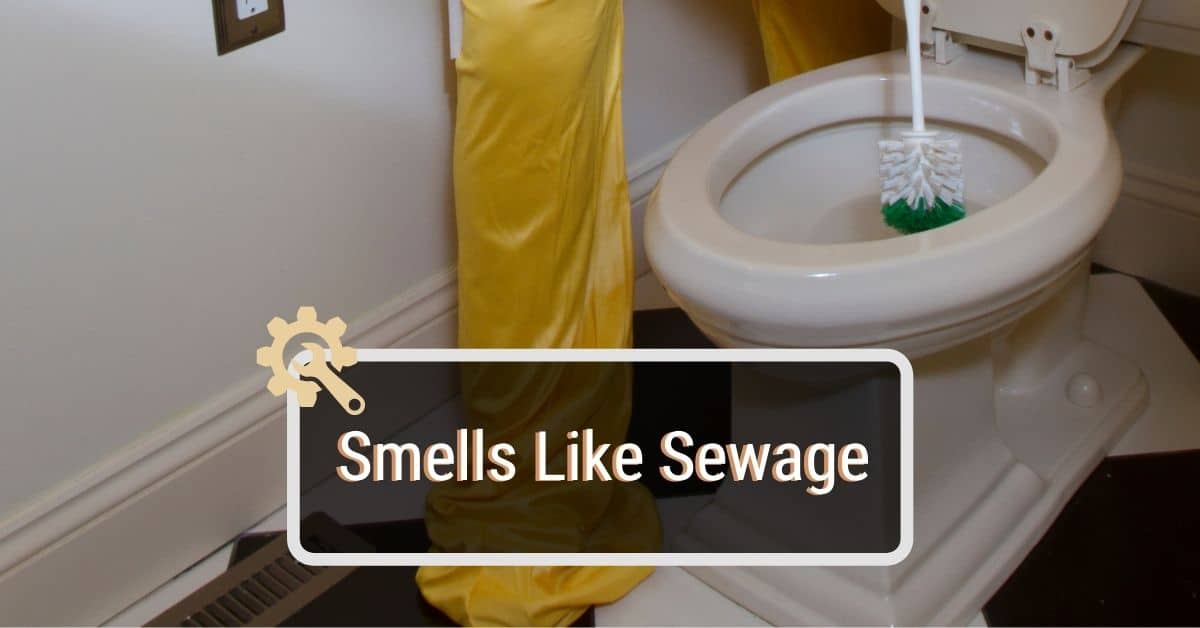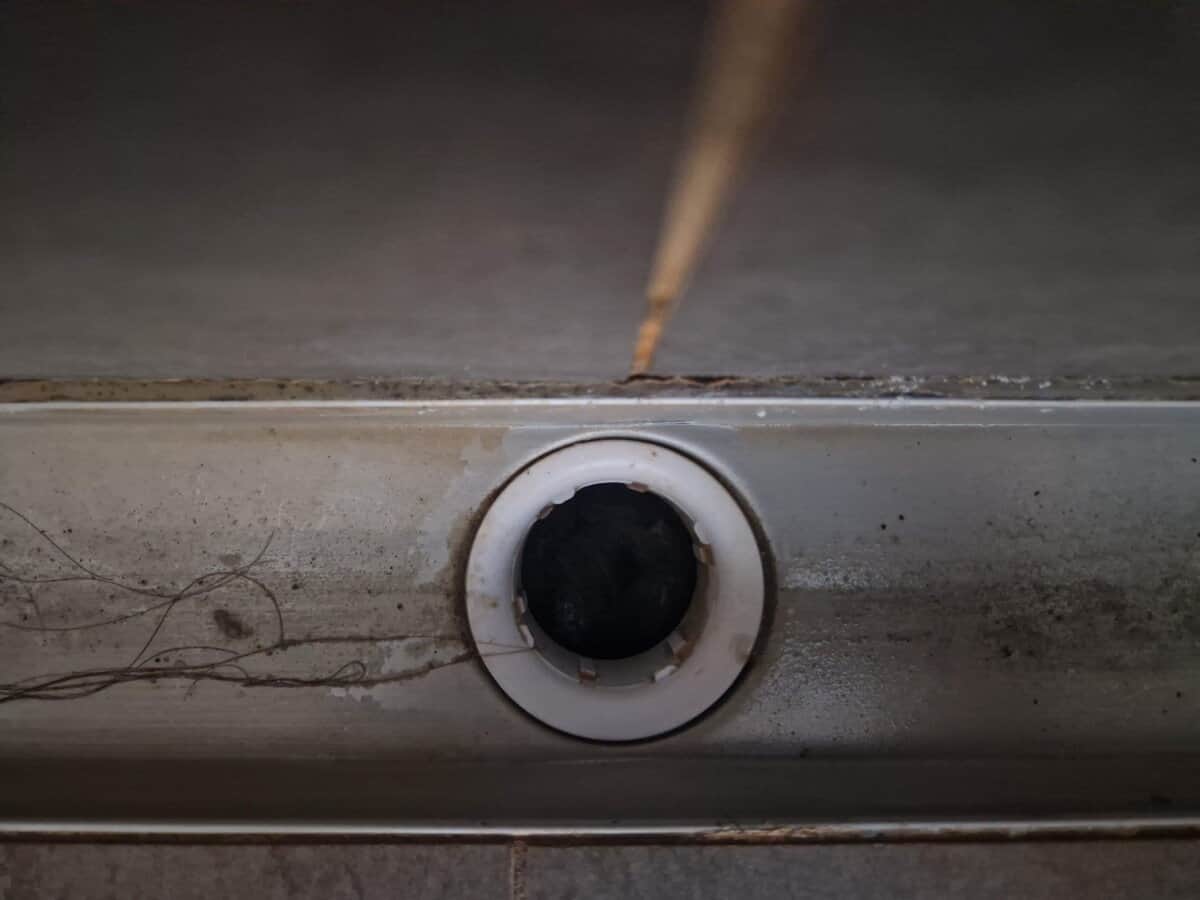Common Causes of Rotten Egg Smell: Bathroom Smells Like Rotten Eggs After Shower

A rotten egg smell in your bathroom after showering can be a real nuisance. It’s usually caused by the presence of hydrogen sulfide gas, which is the same gas responsible for the distinctive odor of rotten eggs. This gas is often produced by bacteria, and it can be a sign of a more serious plumbing issue. Here are some common culprits:
Sewage Gas
Sewage gas is a common cause of a rotten egg smell in bathrooms. This gas is produced by the breakdown of organic matter in sewage systems, and it can seep into homes through cracks in pipes or faulty plumbing fixtures. Sewage gas can be particularly noticeable after showering because the hot water can cause the pipes to expand, which can create small openings for the gas to escape.
- Symptoms: A strong, pungent rotten egg smell that is often accompanied by a feeling of nausea or dizziness.
- Health Risks: Prolonged exposure to sewage gas can cause respiratory problems, headaches, and even nausea. In severe cases, it can lead to carbon monoxide poisoning.
Bacteria in the Drain
Bacteria can accumulate in bathroom drains, particularly in the shower drain, due to the presence of hair, soap scum, and other organic matter. These bacteria can produce hydrogen sulfide gas, which can create a rotten egg smell. This is especially common in older homes with older plumbing.
- Symptoms: A mild rotten egg smell that is usually localized to the shower drain. The smell may be more noticeable after showering or when the drain is not used for a while.
- Health Risks: While the health risks associated with bacteria in the drain are usually minimal, the smell can be unpleasant and potentially embarrassing.
Water Heater Issues
Your water heater can also be a source of rotten egg smell. If the anode rod in your water heater is corroding, it can release hydrogen sulfide gas into the water supply. This gas can then be released into the air when you shower.
- Symptoms: A rotten egg smell that is present in the water coming from the hot water tap. The smell may be stronger when the water is first turned on or when the water heater is running.
- Health Risks: While hydrogen sulfide gas from a water heater is usually not a serious health risk, it can be unpleasant and may indicate a problem with the water heater. In some cases, the gas can corrode plumbing fixtures.
Other Potential Causes
While less common, other factors can contribute to a rotten egg smell in your bathroom. These include:
- Corrosion in Plumbing Pipes: Over time, metal plumbing pipes can corrode, releasing hydrogen sulfide gas into the water supply.
- Faulty Sewer Line: A crack or blockage in your sewer line can allow sewage gas to escape into your home.
- Mold Growth: Mold can grow in damp areas of your bathroom, such as behind shower tiles or under the sink. Certain types of mold can produce a rotten egg smell.
Troubleshooting and Solutions

Identifying the source of the rotten egg smell in your bathroom can be a bit like solving a mystery. It requires a bit of detective work, but with a systematic approach, you can pinpoint the culprit and get rid of the stench.
Troubleshooting Guide
Here’s a step-by-step guide to help you identify the source of the rotten egg smell in your bathroom:
- Check the Water Heater: The most common culprit is a faulty water heater. Over time, the anode rod inside the water heater can corrode, releasing hydrogen sulfide gas, which smells like rotten eggs.
- Inspect the Plumbing: Leaky pipes or faulty plumbing fixtures can also be sources of hydrogen sulfide gas. Check for any visible leaks or signs of corrosion in your bathroom plumbing.
- Examine the Sewer System: A blockage in your sewer line can trap hydrogen sulfide gas, causing it to back up into your bathroom.
- Look for Other Potential Sources: Other sources of hydrogen sulfide gas include decaying organic matter in your drains, faulty septic systems, or even a gas leak.
Solutions, Bathroom smells like rotten eggs after shower
Once you’ve identified the source of the smell, you can take steps to address it:
| Problem | Solution | Cost | Time Required |
|---|---|---|---|
| Faulty Water Heater | Replace the anode rod or the entire water heater. | $100-$500 for anode rod replacement; $500-$2000 for water heater replacement. | 1-2 hours for anode rod replacement; 1-2 days for water heater replacement. |
| Leaky Pipes or Faulty Plumbing Fixtures | Repair or replace the leaking pipes or fixtures. | Varies depending on the extent of the repair. | Varies depending on the complexity of the repair. |
| Blocked Sewer Line | Call a plumber to clear the blockage. | $100-$500 for a basic sewer line cleaning. | 1-2 hours for a basic sewer line cleaning. |
| Decaying Organic Matter in Drains | Pour a drain cleaner or use a plunger to remove the blockage. | $5-$20 for a drain cleaner. | 15-30 minutes for a drain cleaning. |
| Faulty Septic System | Call a septic tank service to inspect and repair the system. | $200-$500 for a septic tank inspection; $500-$2000 for repairs. | 1-2 hours for an inspection; 1-2 days for repairs. |
| Gas Leak | Call a qualified gas professional immediately. | Varies depending on the nature of the leak. | Varies depending on the complexity of the repair. |
Prevention and Maintenance

Preventing that dreaded rotten egg smell from returning requires a multi-pronged approach. It’s not just about fixing the immediate problem, but also about adopting proactive habits and maintaining your bathroom’s plumbing system.
Proper Ventilation
Adequate ventilation is crucial for preventing the buildup of moisture and odor-causing gases. A well-ventilated bathroom helps to quickly remove the steam and humidity produced during showers, preventing the creation of an environment where bacteria can thrive.
- Ensure your bathroom has an exhaust fan: This fan should be turned on during and after showers to expel moisture and odors. Consider running the fan for 15-20 minutes after you’ve finished showering to ensure complete ventilation.
- Check the fan’s functionality: Regularly inspect the fan to make sure it’s working properly. A malfunctioning fan can’t effectively remove moisture and may contribute to odor problems.
- Open a window: If your bathroom doesn’t have an exhaust fan, or if you want to enhance ventilation, open a window during and after showering. This allows fresh air to circulate and remove moisture and odors.
Hygiene and Cleaning
Maintaining good hygiene in your bathroom is essential to prevent the buildup of bacteria and odors.
- Clean your showerhead regularly: Mineral deposits and bacteria can accumulate in the showerhead, contributing to foul odors. Regularly clean your showerhead with a vinegar solution or a commercial cleaner specifically designed for this purpose.
- Clean the drain: Hair and other debris can accumulate in the drain, creating a breeding ground for bacteria. Clean the drain regularly with a drain cleaner or by manually removing any obstructions.
- Keep the bathroom dry: After showering, wipe down the shower walls and floor to prevent moisture buildup. This helps to prevent mold and mildew growth, which can contribute to unpleasant odors.
Maintaining Plumbing Fixtures
Regularly maintaining your plumbing fixtures can prevent leaks and other issues that can contribute to rotten egg smells.
- Check for leaks: Leaks in pipes or fixtures can create dampness, promoting the growth of bacteria that can produce foul odors. Regularly inspect your pipes and fixtures for leaks and address them promptly.
- Clean and inspect drain traps: Drain traps are designed to prevent sewer gases from entering your home. Over time, these traps can become clogged with debris, reducing their effectiveness. Clean the traps regularly to ensure they are functioning properly.
- Consider a water softener: Hard water can lead to mineral buildup in pipes and fixtures, which can contribute to leaks and odor problems. If you have hard water, consider installing a water softener to prevent mineral buildup.
Bathroom smells like rotten eggs after shower – A bathroom that smells like rotten eggs after a shower can be a frustrating and embarrassing problem. The culprit is often a buildup of sulfur-producing bacteria in the drain, which can be exacerbated by poor ventilation. While tackling the smell is a priority, choosing the right countertop can enhance the overall bathroom experience.
To learn more about selecting the best countertop material for your bathroom, consider reading this helpful guide: what type of countertop is best for bathroom. Once you’ve addressed the countertop, you can move on to addressing the underlying cause of the rotten egg smell and enjoy a fresh, clean bathroom.
A bathroom smelling like rotten eggs after a shower is often a sign of a sewer gas leak. While this problem requires professional attention, it’s also a good time to consider the overall health of your bathroom. A well-ventilated bathroom is crucial, and this includes the ceiling.
When choosing materials for your bathroom ceiling, consider the best options for moisture resistance and mold prevention, such as those discussed in this article on bathroom ceiling materials. This can help create a healthier environment and prevent further odor issues in the long run.